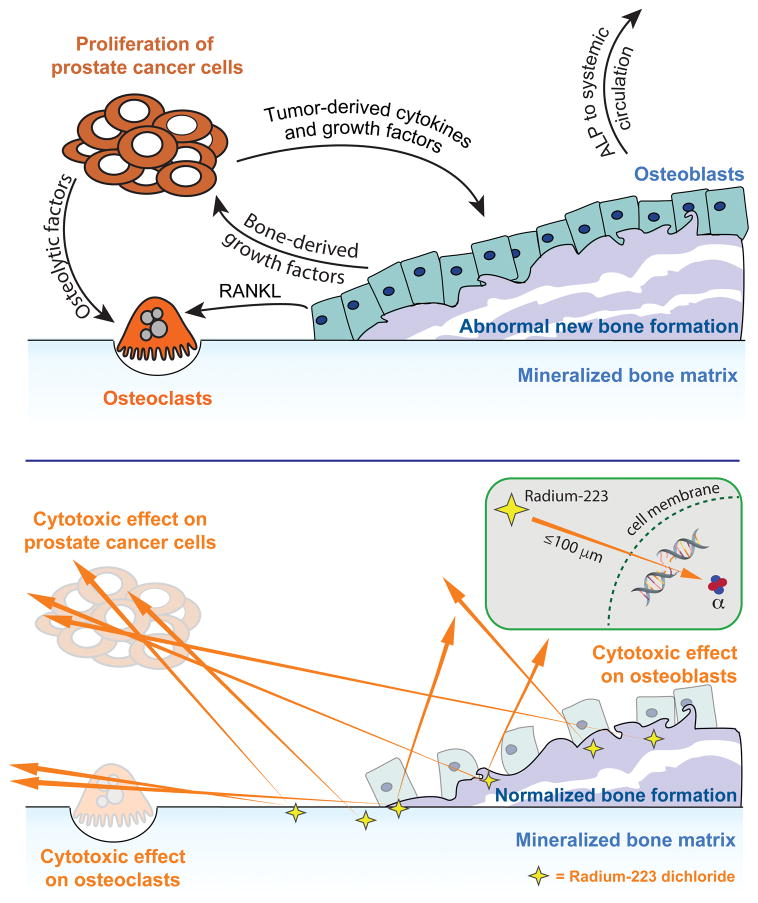Figure 6. Radium-223 therapy exhibits a dual targeting mode-of-action that destroys tumor cells and inhibits tumor-induced pathological bone reaction.
A, Tumor-induced dysregulation of bone remodeling is a key driver in prostate cancer-derived bone metastases. Prostate cancer bone metastases are commonly associated with abnormal osteoblastic bone growth. Prostate cancer cells release paracrine factors that affect both osteoblastic and osteoclastic activity and stimulate abnormal bone remodeling. Osteoblasts, in turn, secrete factors that promote progression of the prostate cancer metastases and stimulate osteoclast activity. The growth factors released from bone by activated osteoclasts further stimulate tumor growth. This complex vicious cycle of prostate cancer bone metastasis results in increased tumor growth and altered bone structure stability resulting eventually in bone destruction. RANKL, receptor activator of nuclear factor kappa-B ligand. B, Radium-223 is a targeted α-therapy with a dual targeting mode-of-action. Radium-223 inhibits the vicious cycle of prostate cancer bone metastases by inducing tightly localized cytotoxic effects through double-stranded DNA breaks in osteoblasts, osteoclasts and prostate cancer cells.

